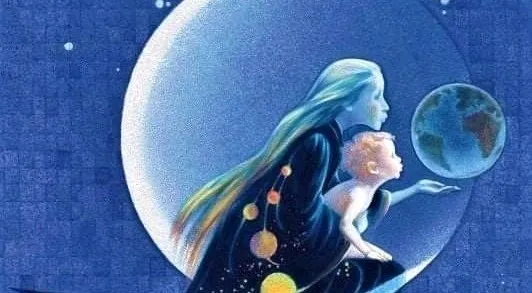Curiosity Killed or Cultivated?
Have you ever taken a moment to marvel at the insatiable curiosity of a young child? They possess an inexhaustible appetite for inquiry, bombarding us with questions at a relentless pace. They eagerly await our responses, poised to absorb knowledge like sponges. But what do we offer them in return? Often, it's a hasty and dismissive reply, lacking in substance and imagination.
Consider the scenario: a child asks, "What is the moon?" Instead of seizing the opportunity to ignite their imagination, we might quip, "The moon is your uncle," or some other equally nonsensical response. In doing so, we inadvertently stifle their innate creativity, relegating them to a cycle of mundane conformity.
It's a cycle that extends beyond mere conversation. As these children grow, their curiosity begins to wane. They become accustomed to receiving superficial answers or, worse, no answers at all. Gradually, they relinquish their role as questioners, adopting instead a passive acceptance of the status quo.
This pattern has far-reaching implications. It shapes not only individual development but also societal norms and cultural attitudes. Those who once possessed boundless curiosity now find themselves confined by the boundaries of conventionality. They no longer challenge the world around them or question the narratives imposed upon them by society and authority figures.
The consequence? A populace that conforms without question, accepting the truths handed down to them without scrutiny. Innovation stagnates, creativity withers, and critical thinking becomes a rarity.
So, as we observe this pattern unfolding, we must ask ourselves: Are we nurturing the inquisitive minds of tomorrow, or are we inadvertently extinguishing the flames of curiosity?
© Sarah✨️
Consider the scenario: a child asks, "What is the moon?" Instead of seizing the opportunity to ignite their imagination, we might quip, "The moon is your uncle," or some other equally nonsensical response. In doing so, we inadvertently stifle their innate creativity, relegating them to a cycle of mundane conformity.
It's a cycle that extends beyond mere conversation. As these children grow, their curiosity begins to wane. They become accustomed to receiving superficial answers or, worse, no answers at all. Gradually, they relinquish their role as questioners, adopting instead a passive acceptance of the status quo.
This pattern has far-reaching implications. It shapes not only individual development but also societal norms and cultural attitudes. Those who once possessed boundless curiosity now find themselves confined by the boundaries of conventionality. They no longer challenge the world around them or question the narratives imposed upon them by society and authority figures.
The consequence? A populace that conforms without question, accepting the truths handed down to them without scrutiny. Innovation stagnates, creativity withers, and critical thinking becomes a rarity.
So, as we observe this pattern unfolding, we must ask ourselves: Are we nurturing the inquisitive minds of tomorrow, or are we inadvertently extinguishing the flames of curiosity?
© Sarah✨️
Related Stories








